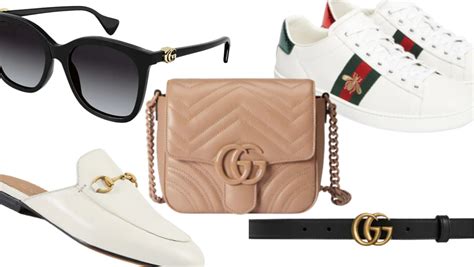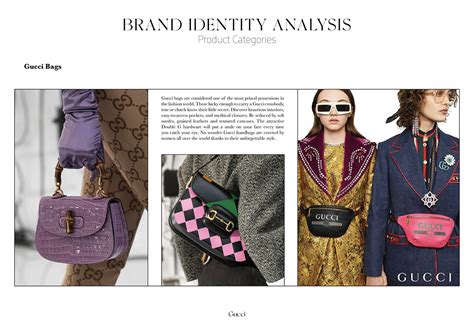buying motives for the gucci brand | gucci brand history buying motives for the gucci brand A strong product strategy deeply connected with pop culture, along with seamless execution of unconventional marketing strategies make Gucci relevant and assures its position . Comparative indices (2022 year) EDK PRINT, Sabiedrība ar ierobežotu atbildību (SIA), 50203199621, Rīga, Sesku iela 9 - 1, LV-1035. Company officials, members and true beneficiaries.
0 · why gucci is so special
1 · gucci sales strategy
2 · gucci marketing history
3 · gucci marketing campaign
4 · gucci influencer marketing
5 · gucci company marketing strategy
6 · gucci company marketing
7 · gucci brand history
Square feet of turf used for Camp EDC. 3 million. How many people have attended EDC since 2011. $2 billion. The economic impact of EDC in Las Vegas since 2011. Heading to the Electric.

why gucci is so special
By tailoring its communication to individual preferences, Gucci has increased the likelihood of conversions and repeat purchases. One of Gucci’s notable strengths is its ability . Gucci’s marketing strategy is a testament to the power of creativity, innovation, and authenticity. For marketing professionals, there are several key takeaways from Gucci’s success: Balancing Heritage and . A strong product strategy deeply connected with pop culture, along with seamless execution of unconventional marketing strategies make Gucci relevant and assures its position . In this extensive blog post, we’ll explore Gucci’s stellar marketing tactics and campaigns over the years. We’ll see how Gucci maintains its elite yet contemporary image. .
By going beyond traditional advertising methods, Gucci aims to engage with consumers on a deeper level and leave a lasting impression. One example of Gucci’s experiential marketing is the Gucci Garden, a unique . Gucci marketing strategy is a testament to the brand’s ability to blend creativity, innovation, and strategic thinking. By understanding its target audience, crafting luxurious . With a strong brand identity, Gucci’s marketing strategies aim to maintain their status as a leading luxury brand while appealing to a diverse audience: Brand identity and image: Gucci’s brand identity is built around .
Gucci holds a leading position in the luxury fashion industry, renowned for its quality, innovation, and iconic style. Explore Gucci's marketing strategy, blending heritage with innovation to . Gucci, with a brand value of a remarkable 37.9 billion USD, stands at the forefront of the luxury fashion industry. It dominates the revenue share of the leather goods category with an impressive 52% share, a testament to the . Gucci is a special luxury brand, and you have to spend a good chunk of money for an authentic Gucci piece. But why? What makes Gucci both special and expensive, and more importantly, are the brand products worth your hard-earned money? By tailoring its communication to individual preferences, Gucci has increased the likelihood of conversions and repeat purchases. One of Gucci’s notable strengths is its ability to create creative and innovative digital marketing campaigns that leave a .
Gucci’s marketing strategy is a testament to the power of creativity, innovation, and authenticity. For marketing professionals, there are several key takeaways from Gucci’s success: Balancing Heritage and Innovation: Embrace your brand’s . A strong product strategy deeply connected with pop culture, along with seamless execution of unconventional marketing strategies make Gucci relevant and assures its position as an industry-leading luxury brand. In this extensive blog post, we’ll explore Gucci’s stellar marketing tactics and campaigns over the years. We’ll see how Gucci maintains its elite yet contemporary image. The brand deftly combines its heritage with cutting-edge marketing to resonate with changing consumer tastes.
By going beyond traditional advertising methods, Gucci aims to engage with consumers on a deeper level and leave a lasting impression. One example of Gucci’s experiential marketing is the Gucci Garden, a unique concept store . Gucci marketing strategy is a testament to the brand’s ability to blend creativity, innovation, and strategic thinking. By understanding its target audience, crafting luxurious products, implementing effective pricing and promotional strategies, and embracing digital advertising and creative direction, Gucci has established itself as a leader .
With a strong brand identity, Gucci’s marketing strategies aim to maintain their status as a leading luxury brand while appealing to a diverse audience: Brand identity and image: Gucci’s brand identity is built around luxury, quality, and Italian craftsmanship.
Gucci holds a leading position in the luxury fashion industry, renowned for its quality, innovation, and iconic style. Explore Gucci's marketing strategy, blending heritage with innovation to dominate luxury fashion. Discover its digital, sustainability, and collaboration tactics.

Gucci, with a brand value of a remarkable 37.9 billion USD, stands at the forefront of the luxury fashion industry. It dominates the revenue share of the leather goods category with an impressive 52% share, a testament to the brand’s unparalleled craftsmanship and .
Gucci is a special luxury brand, and you have to spend a good chunk of money for an authentic Gucci piece. But why? What makes Gucci both special and expensive, and more importantly, are the brand products worth your hard-earned money? By tailoring its communication to individual preferences, Gucci has increased the likelihood of conversions and repeat purchases. One of Gucci’s notable strengths is its ability to create creative and innovative digital marketing campaigns that leave a . Gucci’s marketing strategy is a testament to the power of creativity, innovation, and authenticity. For marketing professionals, there are several key takeaways from Gucci’s success: Balancing Heritage and Innovation: Embrace your brand’s . A strong product strategy deeply connected with pop culture, along with seamless execution of unconventional marketing strategies make Gucci relevant and assures its position as an industry-leading luxury brand.
In this extensive blog post, we’ll explore Gucci’s stellar marketing tactics and campaigns over the years. We’ll see how Gucci maintains its elite yet contemporary image. The brand deftly combines its heritage with cutting-edge marketing to resonate with changing consumer tastes.
gucci sales strategy
By going beyond traditional advertising methods, Gucci aims to engage with consumers on a deeper level and leave a lasting impression. One example of Gucci’s experiential marketing is the Gucci Garden, a unique concept store . Gucci marketing strategy is a testament to the brand’s ability to blend creativity, innovation, and strategic thinking. By understanding its target audience, crafting luxurious products, implementing effective pricing and promotional strategies, and embracing digital advertising and creative direction, Gucci has established itself as a leader .
With a strong brand identity, Gucci’s marketing strategies aim to maintain their status as a leading luxury brand while appealing to a diverse audience: Brand identity and image: Gucci’s brand identity is built around luxury, quality, and Italian craftsmanship.Gucci holds a leading position in the luxury fashion industry, renowned for its quality, innovation, and iconic style. Explore Gucci's marketing strategy, blending heritage with innovation to dominate luxury fashion. Discover its digital, sustainability, and collaboration tactics.

louis vuitton tas with 2
26586 Reviews. $50 and over. French. Top tags: Good for special occasions. Romantic. Great for scenic views. Eiffel Tower Restaurant offers Chef J. Joho’s updated French Classic cuisine overlooking the Bellagio fountains, in one of the most spectacular dining rooms on the strip.
buying motives for the gucci brand|gucci brand history



























